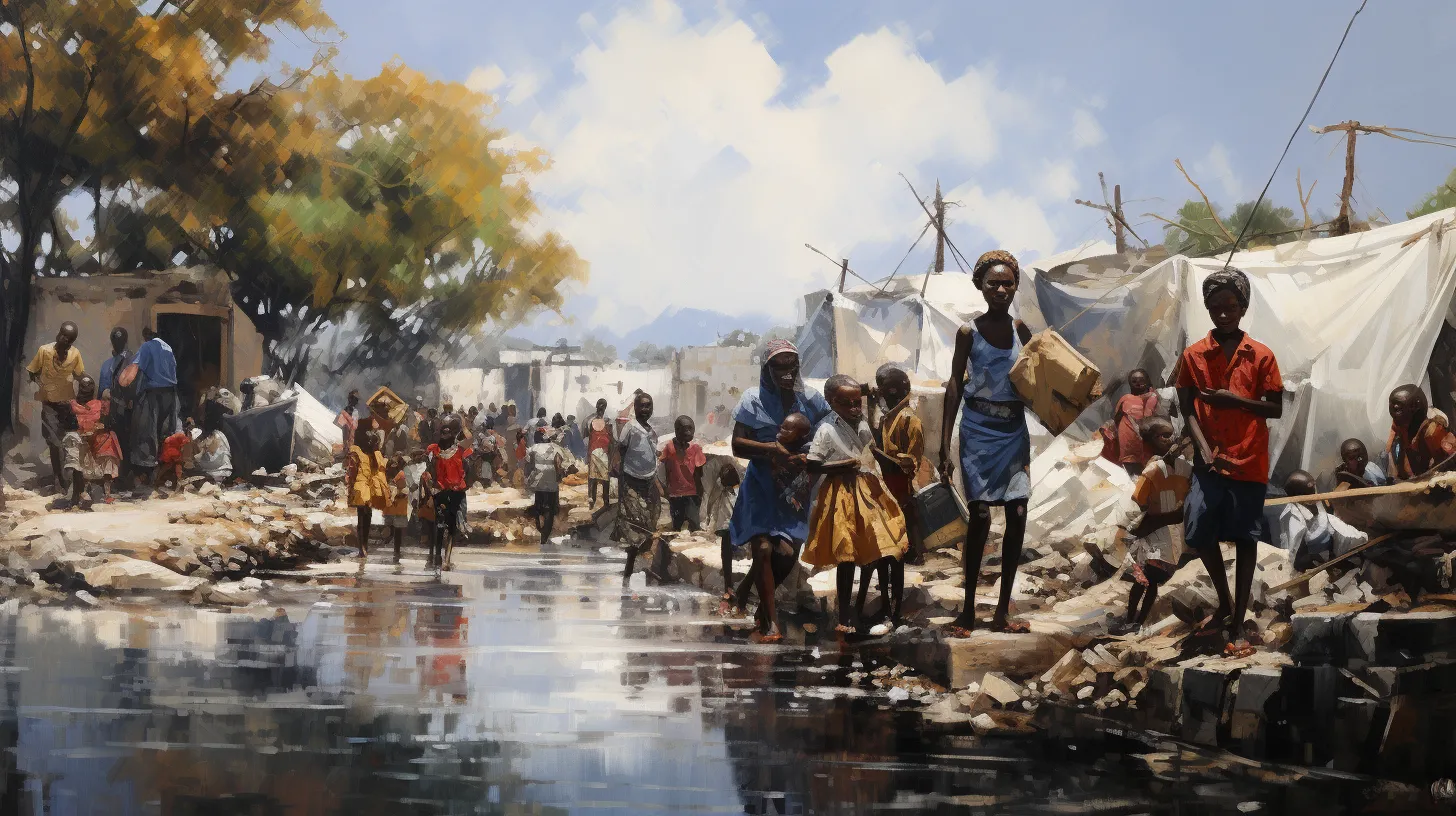Despite the ongoing humanitarian crisis in their homeland, Haitians continue to face deportation.
In 2021, there was a well-documented case of a Haitian immigrant named Jean who had lived in the United States for over a decade being deported back to Haiti.
This occurred despite the dangerous conditions in Haiti, which led to the granting of temporary protected status to the country.
The practice of deporting Haitians contradicts the recommendations of human rights organizations and the United Nations, putting individuals at risk and contributing to the challenges faced by Haitian immigrants.
This underscores the pressing need for a more compassionate and fair immigration system that takes into account the difficult circumstances in their home country.
Current Deportation Policies for Haitians

The US government continues to deport Haitians to Haiti despite calls for suspension from human rights organizations and the UNHCR. This policy contradicts the extended designation of Haiti for temporary protected status.
The current deportation flights to Haiti raise concerns about the security situation and human rights violations faced by deportees. Despite being designated for temporary protected status, Haitians are being subjected to forced return to a country grappling with severe challenges.
The decision to continue deporting Haitians to Haiti amid the immigration crisis has sparked widespread criticism. The deportations also undermine efforts to provide a safe haven for those fleeing from difficult circumstances.
The repatriation of Haitians to Haiti requires a reevaluation, taking into account the ongoing humanitarian crisis and the need for a more compassionate approach.
Impact of US Immigration Regulations

Amid escalating deportations, Haitians face significant challenges due to the impact of US immigration regulations.
The United States’ deportation of Haitians, despite their temporary protected status, has led to forced returns and human rights violations. The increase in deportations, with a substantial rise from 353 to 1,532 deportations between 2021 and 2022, has exacerbated the difficulties faced by the Haitian community.
The repatriation of Haitians to a country grappling with destabilization and a security crisis further compounds the impact of US immigration regulations. Moreover, the use of Title 42 for expulsions denies Haitians the right to seek asylum and fails to provide an opportunity to express fears of persecution or violence.
The consequences of these policies have placed Haitians in vulnerable and distressing situations, raising serious concerns about the humanitarian implications of deportation.
Challenges Faced by Haitian Immigrants

Haitian immigrants encounter numerous obstacles as they navigate the complexities of US immigration policies and face the prospect of deportation.
The United States’ deportation of Haitians despite dangerous security conditions in Haiti has created a deportation crisis. These deportations are considered human rights violations and contradict international law, especially as Haiti isn’t currently safe for repatriation.
Haitian immigrants seeking asylum in the US face challenges due to double standards and inconsistencies in immigration regulations. The risks faced by returnees to Haiti, including kidnapping and extortion by criminal gangs, highlight the urgent need for improved security conditions before any deportations can be considered safe.
Advocacy for the suspension of deportation flights to Haiti is essential to prevent harm and uphold the human rights of Haitian immigrants.
Uncertainties in the Immigration System

Despite mounting advocacy efforts, the US government continues to grapple with uncertainties in its immigration system, contributing to ongoing challenges for individuals seeking refuge.
The deportation of Haitians amid the crisis in Haiti has raised significant concerns about the legal basis and consistency of the immigration system. The United States’ advice for Americans to leave Haiti due to dangerous conditions contradicts the deportation of Haitians, highlighting inconsistencies.
The uncertainties surrounding the repatriation of individuals to Haiti, a country facing severe difficulties, further underscore the complexities within the immigration system.
These uncertainties not only affect Haitians but also raise broader questions about the United States’ deportation policies and their alignment with human rights principles.
As such, the need for a clear and just immigration system is paramount in addressing the uncertainties and contradictions surrounding deportation to Haiti.
Advocacy Efforts for Haitian Refugees

Advocates continue to press for the protection of Haitian refugees through ongoing efforts to challenge deportation policies and raise awareness of their plight.
The United States’ deportation flights to Haiti have raised concerns of human rights violations, prompting international advocacy from organizations like Human Rights Watch and the United Nations High Commissioner for Refugees (UNHCR).
These efforts aim to halt forced returns to Haiti, citing the risks of collective expulsions and alleged human rights violations and abuses against Haitians in migration routes, at borders, and in detention centers.
The collective advocacy underscores the urgency of addressing the challenges faced by Haitian refugees and calls for a suspension of deportation flights to Haiti.
The international community, including the US government, is facing mounting pressure to reevaluate its deportation policy and ensure the protection of Haitian refugees.



